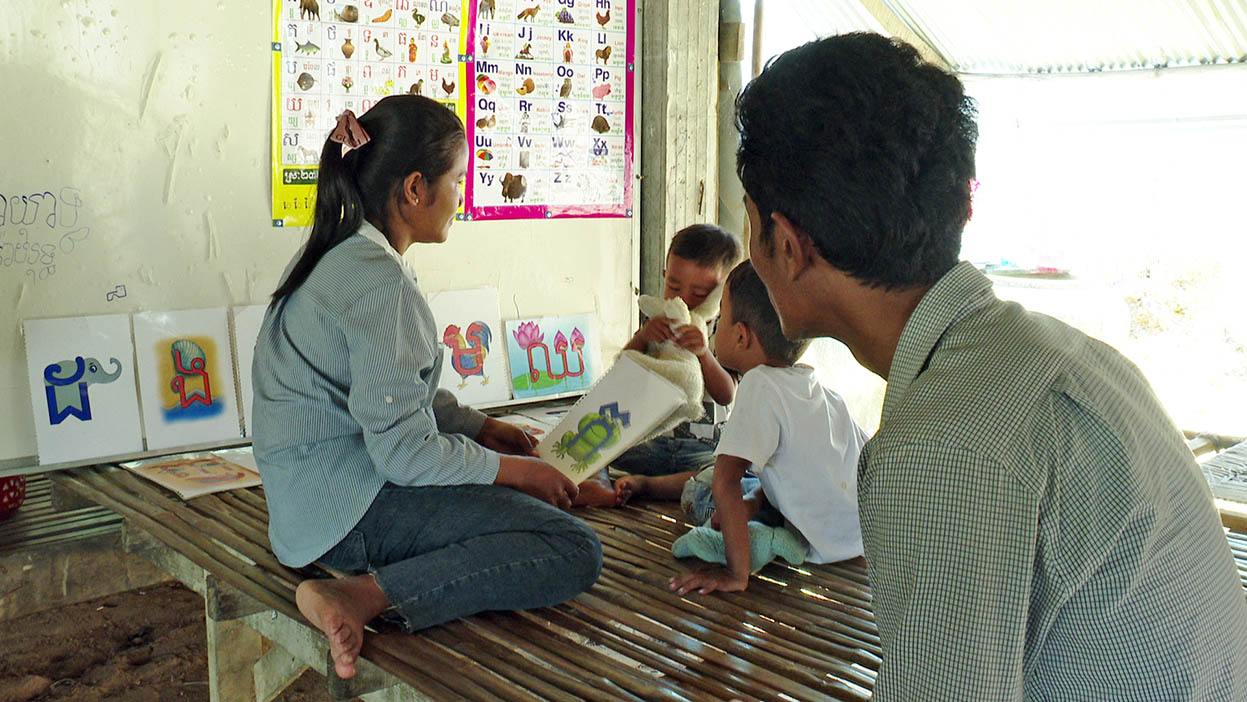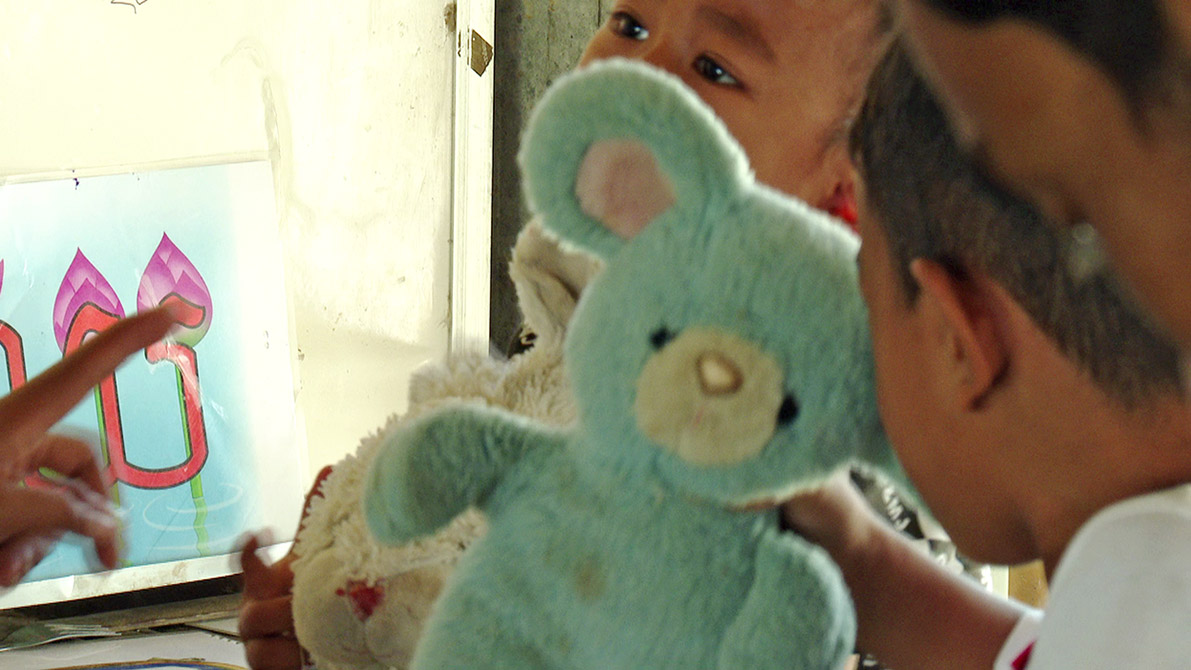Theary is an artisan in Takeo province. Her husband, Socheat, is a welder. The two first met when Socheat was visiting his grandfather. He thought Theary was beautiful and asked his family to approach hers on the topic of marriage. Theary thought that Socheat was very kind. While talking about the golden days of how they first met and began courting each other, both shared bright eyes and smiles. They have been married since 2012.
Unfortunately, the old happy days were soon replaced by stress and fighting. Socheat would often commute to Phnom Penh for work, about an hour or two away from home. When he would return, he would feel too tired to spend time with his wife and children.
As time went on, they would often fight over small matters. They did not know how to communicate with one another. When one got angry, the other would not know how to begin to reconcile. Both wanted to win their fights and be in the right. The couple’s negative energy eventually boiled over and affected how they treated their two sons. Their eldest son has also asked them to stop fighting as well.
Theary was the main disciplinarian in the family. She would be short with her children, yell at them or even hit them when they did not listen. She knew that she should not have treated her children that way but she could not control herself, nor did she know how to discipline them differently.
The constant bickering between Theary and Socheat took a toll on all of their family members in different ways. Socheat developed an inflammatory lung disease and could no longer do his welding job in Phnom Penh, so he began working at a recycle place to earn an income instead while Theary worked in the factory. The eldest son in the family appeared to be the most affected by the conflict. He was hospitalized regularly at Kantha Bopha Children’s Hospital in Phnom Penh, and was diagnosed with encephalitis. The doctors recommended they help build a stress-free environment to keep their son from getting sick often.
Theary, strained by the added financial burden and hospital debt, would often cry in secret by herself to not cause stress on her family further.
She said, “I cried almost every day. I couldn’t cry in front of my husband to not stress him any further. [I] would hide behind the house, crying. I would scream and cry by myself. I didn’t know where to find [money]. Both my husband and child were sick. Sometimes, in a month, I didn’t have any money to buy food to eat, for either half a month or the whole month.”
Cousins, aunts, and other relatives would try to help the family with food, gasoline, and petty cash, after they had sold virtually all their land. Even the commune chiefs saw and declared their poverty to be serious, so the family was able to get aid at public hospitals. Theary, Socheat, and their children felt like they were drowning, until their lives saw a huge change after meeting someone from World Vision International Cambodia.
Theary enrolled in World Vision’s ‘Celebrating Family’ program, where she first learned to stop reprimanding her son when helping him with his studies, because she finally noticed that he was often too afraid to make mistakes or ask her questions. Instead, she learned to speak more softly and encourage her son. She also learned about the concept of “broken sign” and “complete sign” families.
The concept of “broken sign” and “complete sign” families are something Theary learned in the ‘Celebrating Family’ program. She learned about the actions and words that would separate families instead of getting them closer to one another and how to create a positive and loving relationship to build hope and a vision for the future.
While Theary took part in this program with about 20 or so other families from the village, her husband would stay at home and look after the kids. When she would return after every class, she would share what she had learned with her husband.
Theary began implementing the positive discipline methods she had learned with her children, and quickly noticed good results. Her eldest son was now more social and was beginning to make new friends at school. He was also more inquisitive, learning to read and write by himself, listening to his mother more, and beginning to dream about his future.
Theary said that she has experienced all kinds of suffering because she was not educated enough to get a high-paying job, so she will do all she can to help her children learn and have better lives. Her son has already expressed his interest in wanting to become an engineer when he grows up.
Socheat also learned to be more supportive of his children. He began helping to take them to school and pick them up after, and made sure not to raise his voice around the children so that they would not learn that behavior in the future. He also started buying them snacks to reward their good behavior.
Socheat’s health also improved, though he still is burdened with stomach problems that resulted from taking his lung medication for so long. Now when he comes back home from work, he is happy to see his family even if he feels tired, unlike before. He said he has also seen a difference in his son’s health.
He said, “[My son] is happier than before and doesn’t get sick as often.”
The ‘Celebrating Family’ program has also positively impacted the couple’s marriage. Now when they fight, instead of lashing out in anger, they both take time to cool off and ask each other why they are fighting. They take time to listen to one another and do not try to win arguments for the sake of winning, nor do they make a big deal out of small matters like they used to.
Theary is now happily working on silk dying projects for NGOs. Socheat has found work closer to home with less commute to be closer to his family. The couple’s children are also getting along well with one another and learning well in school. Their family has turned from a “broken sign” to a “complete sign.”
"This independent article/video is part of a World Vision International Cambodia - EAC initiative to ensure children are better protected. Views expressed are purely the author's and may not necessarily reflect World Vision's position."


























